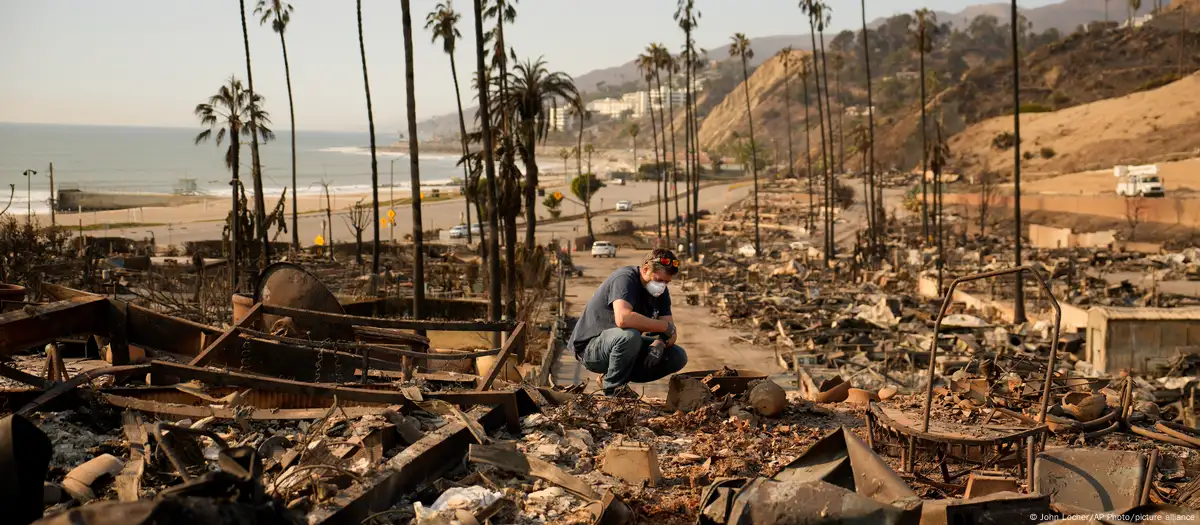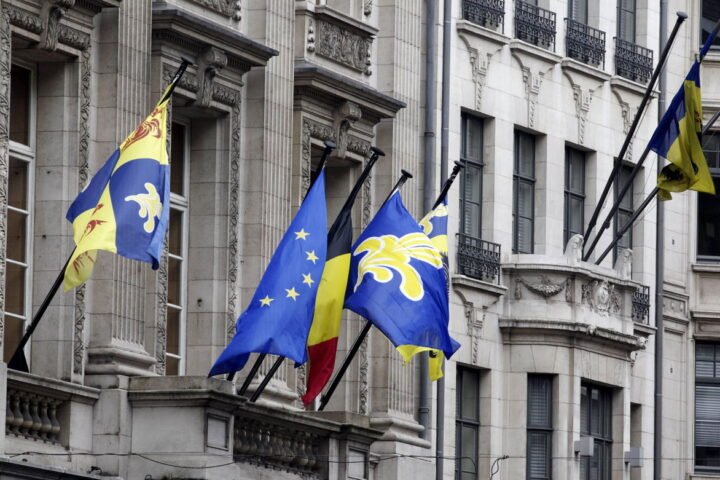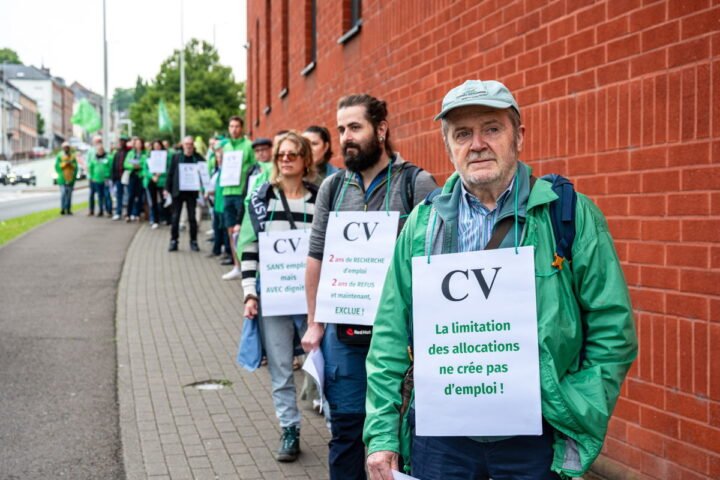The devastating wildfires which have hit Los Angeles and other parts of southern California could be one of the costliest natural disasters in US history. They’re also wreaking havoc for already struggling home insurers.
Few places embody wealth and glamour quite like the Hollywood Hills of Los Angeles. The exclusivity of such neighborhoods in the city is one of the reasons why the wildfires which have struck the wider Los Angeles areacould become one of the costliest natural disasters in US history.
The wildfires have left at least 24 people dead, and have already destroyed tens of billions of dollars’ worth of property. They’ve threatened iconic landmarks and have reduced several well-known LA locations and buildings to ash.
Estimates of the damages by insurers have risen as the disaster has worsened. New estimates from Wells Fargo and Goldman Sachs put the potential losses for the insurance industry at $30 billion (€29.2 billion).
JPMorgan and others last week put a figure of around $20 billion on the losses.
It now appears that the wildfires will prove the most expensive wildfire disaster in US history in terms of insured losses (see graphic below), eclipsing the costs of other recent disasters in California and Hawaii.
To date, the Camp Fire which struck Northern California’s Butte County in November 2018 is the costliest in US history, by insured losses. The insurance firm Aon estimated its losses at just under $13 billion. Notably, the top four costliest US wildfires have all occurred in the past seven years.
However, the final tallies of insurance losses from natural disasters can vary dramatically from initial estimates, as it’s difficult to make accurate predictions when the disaster is ongoing.
‘One of the costliest wildfire disasters in modern US history’
There is also the distinction between insured losses — the assessed monetary amount of actual damages and losses covered by insurance — and wider economic damage which includes uninsured losses. Wider economic loss can also include lost wages, lost income for businesses and supply chain disruption.
The private US weather service AccuWeather, which also measures the costs of weather events, now estimates total losses at between $250 billion and $275 billion, almost double what it estimated last week. If those figures are borne out, it would make the LA wildfires the costliest natural disaster in US history.
“These fast-moving, wind-driven infernos have created one of the costliest wildfire disasters in modern US history,” AccuWeather Chief Meteorologist Jonathan Porter said on the company’s website. “Hurricane-force winds sent flames ripping through neighborhoods filled with multi-million-dollar homes. The devastation left behind is heartbreaking and the economic toll is staggering.”
Officials have said 12,000 buildings have already been destroyed, including many businesses. There is also significant damage to infrastructure, adding to the longer-term costs of reconstruction
Hurricanes do the most damage
In terms of the costliest US natural disasters ever, the most expensive to date were all hurricane events. The most expensive by far was Hurricane Katrina, the devastating 2005 tropical cyclone which led to massive loss of life and economic damage, particularly in the southern city of New Orleans.
The estimated insured losses alone for Hurricane Katrina were more than $100 billion, according to Aon.
According to the National Oceanic and Atmospheric Administration (see graphic), the total costs of the disaster were just shy of $200 billion, ahead of Hurricane Harvey (2017), Hurricane Ian (2022), Hurricane Maria (2017) and Hurricane Sandy (2012).
Fires heap pressure on California home insurance
The wildfires are expected to put major pressure on California’s already embattled home insurance sector.
Firms in the area are bracing for tens of billions of dollars worth of losses, including companies such as Chubb and Travelers, which typically specialize in providing insurance for expensive, exclusive properties.
Some companies, such as Allstate and State Farm, recently stopped selling new home insurance in California. They blamed regulatory caps on home insurance price rises in the state, which they say make it increasingly difficult to operate in a region that has been hit by many severe wildfires in recent years.

That has left many homeowners without private insurance and reliant on California’s public insurance system, known as Fair Plan. Fair Plan is estimated to have exposure of around $6 billion in the exclusive Pacific Palisades area alone, one of the areas worst affected by the fires.
High losses for Fair Plan could force private insurers to step in, as the public plan has provisions for private insurers to pay for the claims it can’t meet.
The growing prevalence of wildfires in California could force a rethink of the state’s entire home insurance system, some analysts have suggested. Climate change has intensified wildfire season in the state, with major cities and high density areas increasingly threatened.








